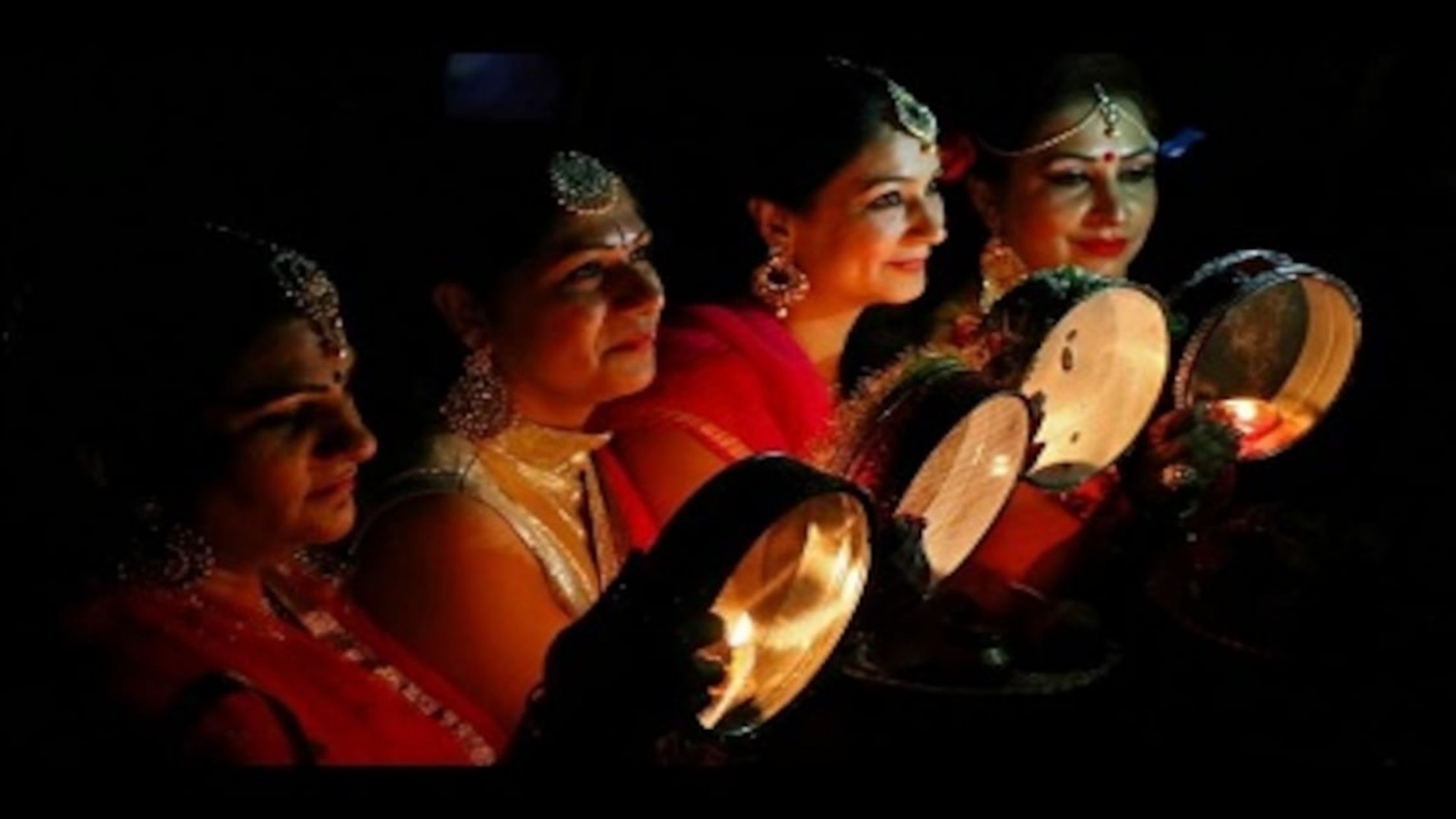Tales behind Karwa Chauth | read those unprecedented narratives

Karwa Chauth is a very important fasting ceremony for every Hindu married woman in the Indian subcontinent (especially north-western India). This 1-day festival begins at dawn and ends with the moonrise. This festival is celebrated on the fourth day after the full moon in the month of Kartik.
On this day married women observe dry fasting (excluding food and drink). And after offering sacrifices to the moon, they break the fast at the hands of the husband. Although it is considered a difficult day, every married woman celebrates this festival with a captivated mind. This festival is very important for every woman because this festival is being celebrated with the meaning of protection of her husband. To this day Karwa Chauth is celebrated with utmost faith and trust.
Karwa Chauth means offerings to the moon on the fourth day of the month of Kartik using a clay pot known as Karwa. The source of this festival is still very mucilaginous but of course, there are some reports associated with this festival. Some wondering and ear-catching stories that show the reason behind this festivity are undermentioned:
- Loving tales of Queen Veervati: Once upon a time, there was a beautiful queen named Veervati. And she was the only sister of her loving and caring seven brothers. In a Karwa Chauth, she was in the place of her parent, and from dawn, she began to fast with all the ceremonials and eagerly awaited the moonrise. Seeing their beloved sister in a state of hunger, her seven brothers made a false moon by placing a mirror in a pipal tree. Admitting that mirror as moon just as the queen broke her fast she heard the news of the death of her beloved king. She cried and hearing her the goddess had come and explained to her about the trickery of her brothers and advised her to do Karwa Chauth again. She performed rituals again with full devotion and Yama, the God of death was forced to bring her husband back to life.
- From tales of Mahabharata: To describe this fast and its surrounding rituals, we have to jump back to the Mahabharata’s chapter, one of the two major Sanskrit epics of ancient India. It is said that Arjun, the third Pandava of the Pancha-Pandava, once went to the Nilgiri to perform self-punishment. On the other hand, in his absence, the other four Pandavas faced some difficult problems. Concerned about not being able to solve those problems, Draupadi prayed to Lord Krishna for help. In answer, Lord Krishna told her to perform the Karwa Chauth vows of Devi Parvati. And he also narrates how Lord Shiva told Devi Parvati the story of Veervati to quickly describe Karwa Chauth. Knowing this, Draupadi followed the vows of Karwa Chauth by following all the rituals and customs and all the Pandavas were able to come out of their problems quickly.
- From Karwa’s love-story: A woman named Karwa was deeply attached to her husband. Her intense love and devotion to him gave her spiritual power. Once bathing in the river, her husband was caught by a crocodile. Karwa tied the crocodile with a cotton thread and told Yama, the god of death to send the crocodile to hell. As Yama refused to do so, Karwa threatened him to curse. Fearing being cursed by a devoted wife, Yam sent the crocodile to hell and gave Karwa and her husband a blessing for long life. Says go that then Karwa and her husband have enjoyed many years of married happiness.

